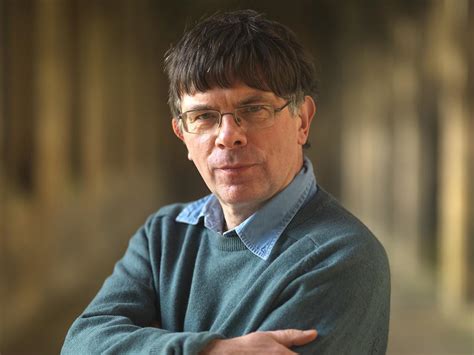A Quote by Samael Aun Weor
If evolution exists in every living species, likewise so too does devolution.
Related Quotes
Why does evolution matter? There is so much about the evolution of life, the development of life on Earth that should rivet the attention of everyone to understand where we've come from and where we might be going. We need to understand the world around us if we are to succeed as a species on the planet.
Biology is a science of three dimensions. The first is the study of each species across all levels of biological organization, molecule to cell to organism to population to ecosystem. The second dimension is the diversity of all species in the biosphere. The third dimension is the history of each species in turn, comprising both its genetic evolution and the environmental change that drove the evolution. Biology, by growing in all three dimensions, is progressing toward unification and will continue to do so.
Researchers keep identifying new species, but they have no idea about the life cycle of a given species or its other hosts. They cut open an animal and find a new species. Where did it come from? What effect does it have on its host? What is its next host? They don't know and they don't have time to find out, because there are too many other species waiting to be discovered and described.
One must believe that every living thing whatsoever must change insensibly in its organization and in its form... One must therefore never expect to find among living species all those which are found in the fossil state, and yet one may not assume that any species has really been lost or rendered extinct.
Man wants to see nature and evolution as separate from human activities. There is a natural world, and there is man. But man also belongs to the natural world. If he is a ferocious predator, that too is part of evolution. If cod and haddock and other species cannot survive because man kills them, something more adaptable will take their place. Nature, the ultimate pragmatist, doggedly searches for something that works. But as the cockroach demonstrates, what works best in nature does not always appeal to us.
You can imagine a different world in which a number of species developed with different genetically determined linguistic systems. It hasn't happened in evolution. What has happened is that one species has developed, and the genetic structure of this species happens to involve a variety of intricate abstract principles of linguistic organization that, therefore, necessarily constrain every language, and, in fact, create the basis for learning language as a way of organizing experience rather than constituting something learned from experience.
The earth has continued to change, from rapid climatic changes that have caused the glaciers and the ice sheets to basically bulldoze the landscape and cause species compression in the tropics and cause mass species extinction - you know, all these huge changes. In terms of evolution, every species is doomed to eventual extinction. The natural world is constantly changing. So, to deal with "environmental problems," in quotes, totally misses the issue. That is not the way we want to define our problem if we're going to find our solution.


































